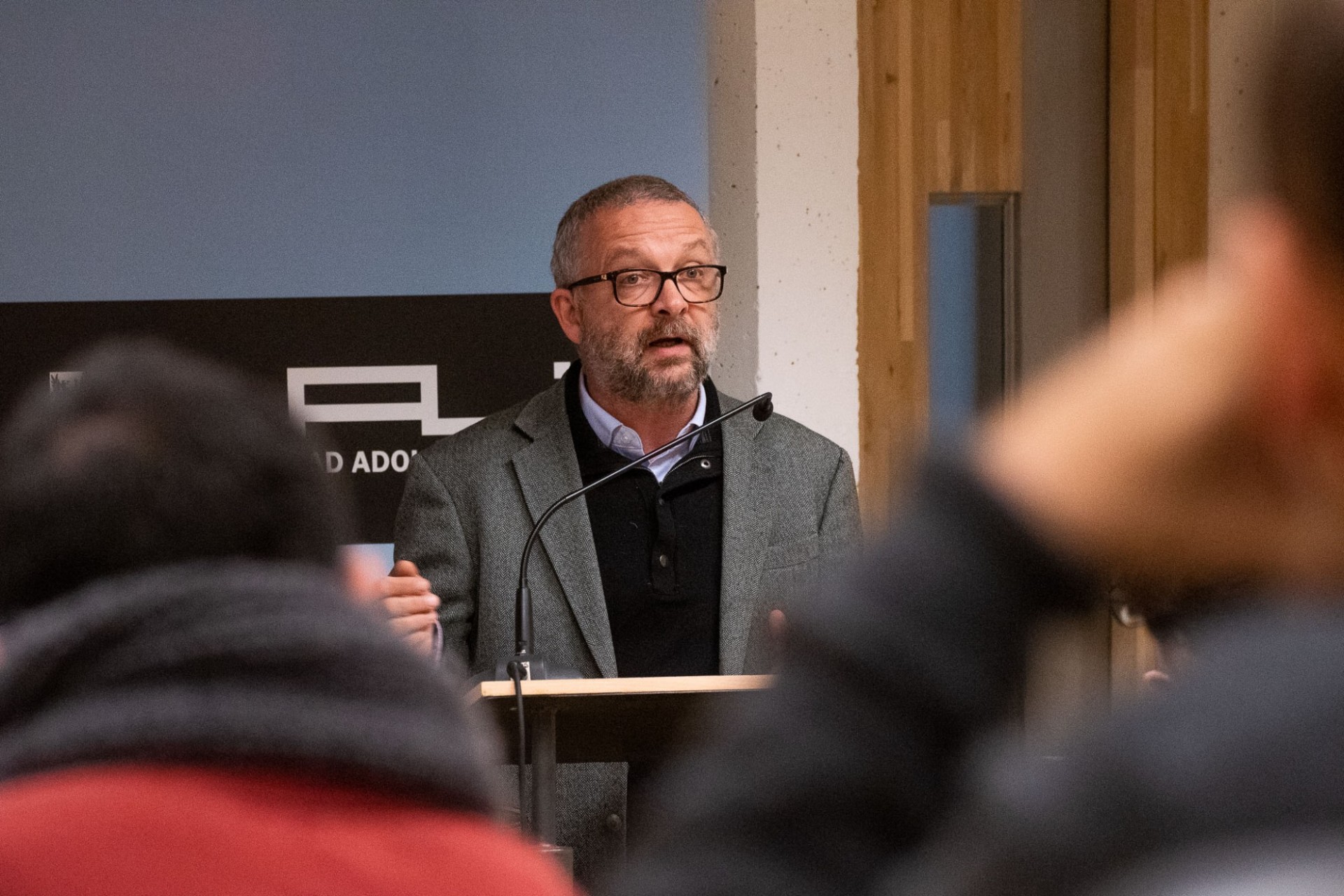Columbia Professor Delivers keynote Address at the First Chilean Conference on Law and Society

Mexico’s homicides rates have soared in the past decade. Such a situation is commonly associated to drug trafficking and cartel wars. However, as Columbia’s History Professor Pablo Piccato recently explained to a Chilean audience, it is actually impossible to know how many of these crimes are related to drugs, considering that most of them remain unresolved and unpunished. “It is not feasible to grasp the complexity of the current crisis of violent murders in Mexico, as well as the unresponsiveness of its judicial system, without a long-term understanding of Mexico’s history of crime, truth and justice”, said Piccato’s during a keynote speech at the First Chilean Conference on Law and Society.
The gathering, organized by the Chilean Law and Society Studies Group and sponsored by Columbia Global Center/Santiago, Universidad Adolfo Ibáñez (UAI), Universidad Alberto Hurtado (UAH), and Universidad Diego Portales (UDP) was held at Adolfo Ibáñez’s University campus in Viña del Mar in mid-August.
Over two days, around forty scholars from Chile and other countries in Latin America discussed the current state, the challenges, and the possibilities of developing the field of Law and Society studies in the region. The empirical and interdisciplinary perspective to the study of the law and law-related phenomena has been slow to develop in Latin America and particularly in Chile, marked by a strongly formalistic legal culture.
The Conference brought together a new generation of scholars who are using the perspectives and methods of sociology, anthropology, history, political science, economy, and literature, among others, to understand how the law and judicial institutions work in practice, how people uses and understand their meanings, and how they responds and adapt to social change or fail to do so.
Piccato’s presentation came at the end of two days of intense work. His historical perspective on the reasons behind the failure of Mexico’s justice system to address violent crime, and how Mexicans have reacted and pursued truth and justice through alternative means outside the state, provided an interesting counterpart to the case of the host-country. In Chile murder rates have been historically low and the justice system, while certainly has challenges, is relatively effective in addressing these violent crimes. While both countries share the same legal tradition and have similar legal systems, it is the social, historical, political, and cultural factors that explain the divergence between the two.
By bringing his historical perspective on the case of Mexico, Piccato provided his Chilean audience with rich elements of comparison and reaffirmed the need to understand how law and justice work in practice, and therefore, to develop the field of Law and Society studies throughout Latin America.